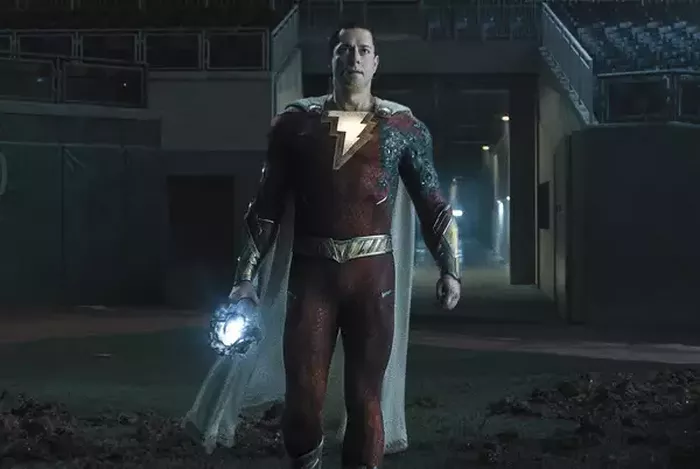When a highly anticipated sequel fails to meet expectations, fingers are often pointed in various directions. In the case of the Shazam sequel, actor Zachary Levi has been vocal about blaming what he calls “insanely unkind” haters and the toxicity of social media for the film’s lackluster performance. In this article, we delve into the aftermath of the Shazam sequel, examining the impact of online criticism and toxicity on the movie industry and the artists behind the screen.
1. The Hype and Expectations
Before we delve into the controversy surrounding the Shazam sequel, it is crucial to recognize the hype and expectations that accompanied the film’s announcement. The first installment, “Shazam!” released in 2019, was a surprising hit, charming audiences with its blend of superhero action and lighthearted humor. Naturally, fans were eager for a follow-up, hoping for an even more exciting and thrilling adventure with their beloved hero.
2. Critical Acclaim vs. Audience Reception
The first sign of division emerged when critics and audiences seemed to have different views on the original “Shazam!” film. While critics praised its humor and heart, some viewers found it too light-hearted and lacking the grit and intensity typically associated with superhero films. This discrepancy in opinions foreshadowed the potential challenges the sequel might face in appeasing both sides of the audience spectrum.
3. Zachary Levi’s Passion and Commitment
Zachary Levi’s portrayal of the titular character in “Shazam!” was undoubtedly one of the highlights of the original film. His infectious energy and enthusiasm for the role resonated with fans and demonstrated his deep commitment to bringing the character to life. Given Levi’s passion and dedication, it’s understandable that he had high hopes for the sequel, as did his loyal fan base.
4. The Sequel’s Release and Box Office Performance
Upon release, the Shazam sequel faced mixed reviews from both critics and audiences. While some praised the film’s continued humor and camaraderie among the cast, others felt that it failed to surpass the first film’s charm. As a result, the box office performance fell short of expectations, leading to speculation and debate within the industry and among fans.
5. Zachary Levi’s Candid Response
In the wake of the sequel’s less-than-stellar performance, Zachary Levi didn’t shy away from expressing his thoughts on social media. In a series of candid posts, he addressed what he perceived as the film’s unjust treatment at the hands of “insanely unkind” critics and fans. Levi lamented the toxicity prevalent on social media platforms and how it can take a toll on the mental health of artists involved in such projects.
6. The Impact of Online Criticism
Zachary Levi’s reaction brought to the forefront the ongoing issue of online criticism and its potential effects on the movie industry. With the rise of social media, everyone’s opinion can be amplified, leading to both positive and negative outcomes for films and their actors. While constructive criticism can be helpful for filmmakers to improve their craft, outright hate and vitriol can be damaging to artists’ morale and creative endeavors.
7. The Toxicity of Fandoms
One of the significant aspects highlighted by Levi’s response was the toxicity that can sometimes emerge from fan communities. While passionate fandoms can be a driving force behind a film’s success, they can also turn toxic when disagreements arise. The pressure to meet fans’ expectations can be overwhelming for artists, and facing relentless criticism can create an unhealthy atmosphere for everyone involved.
8. The Toll on Mental Health
The mental health toll of social media toxicity is not limited to the movie industry alone. Celebrities and public figures from various fields have spoken out about the impact of online hate and the toll it takes on their mental well-being. Zachary Levi’s candid discussion about this issue has sparked important conversations about the need for a more compassionate and understanding online community.
9. The Responsibility of Fans and Critics
While artists like Zachary Levi bear the brunt of online criticism, fans and critics also have a responsibility to engage with media in a respectful manner. Constructive feedback and discussions can be beneficial for the industry’s growth, but resorting to personal attacks or relentless negativity only perpetuates a toxic culture that hinders creativity and innovation.
10. The Future of Shazam and the DCEU
As the Shazam franchise moves forward, it faces both challenges and opportunities. While the sequel’s performance may not have met initial expectations, there is still potential for growth and evolution. Filmmakers, actors, and fans alike can learn from the discussions surrounding the film’s release and work towards fostering a more supportive and encouraging environment.
Conclusion: Lessons from the Shazam Sequel Controversy
The Shazam sequel controversy sheds light on the impact of social media toxicity and the role it plays in the movie industry. Zachary Levi’s candid response has initiated vital conversations about the responsibility of fans, critics, and the importance of mental health support for artists.
As the entertainment landscape continues to evolve, it is essential for fans, critics, and creators to remember that behind every film, there are hardworking individuals pouring their hearts into their craft. By fostering a more compassionate and understanding environment, we can create a space where creativity can flourish, and the magic of storytelling can continue to captivate audiences worldwide. Let us learn from the lessons of the Shazam sequel and work together towards a more positive and uplifting entertainment community.
RELEATED READING:
-
Haunted Mansion Cast: Meet the Stars of Disney’s Spine-Chilling Reboot
-
BTS’ Jimin Receives Ryan Gosling’s Ken Guitar from Barbie

